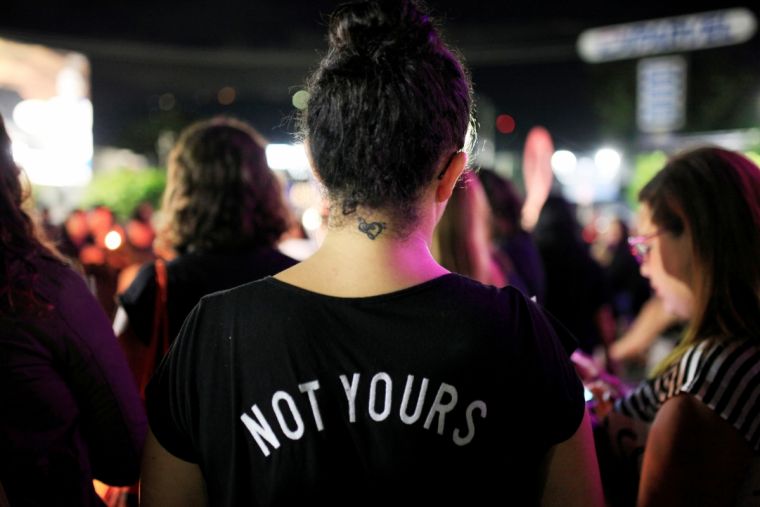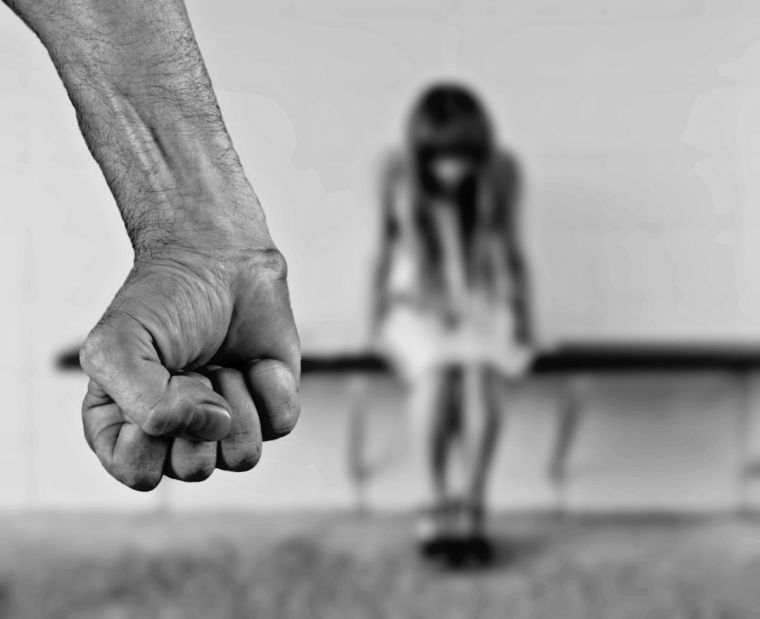Sexual Violence: Why Christians Have To Talk About It
On average, two women in England or Wales are killed each week by a current or former male partner. Approximately 85,000 women are raped in the UK every year. In 2009, NSPCC research found that 27 per cent of girls aged 13 to 17 had experienced sexual violence in a relationship and almost three quarters had experienced emotional abuse.

These statistics should horrify us – and not just because they make for shocking newspaper headlines, hard-hitting reports and infographics with impact. These statistics are the stories of our friends and relatives; the systemic abuse of women touches us all. I haven't met a woman who has never been catcalled or groped. Even if we haven't experienced it ourselves, we can usually name someone we know who has been emotionally or physically abused, raped or stalked.
We may not be able to escape the effects of violence, abuse and unhealthy relationships, but teaching on these issues within the Church and wider Christian culture is often sadly lacking in advice and support. At best, it often focuses on an ideal of marriage that perhaps assumes Christian couples aren't affected by such issues and leaves everyone involved unequipped to deal with them when they do come up. At worst, it can condemn survivors, leaving them feeling unsupported and ashamed.
What's becoming increasingly clear is that the numbers of survivors within the Church are higher than many may think. In summer 2015, Soul Action surveyed young, female delegates at the Momentum festival about their sexual experiences. More than half of those surveyed had experienced unwanted sexual touching. 30 per cent said they had experienced fear of their partner in a relationship and 42 per cent had felt pressured to perform sexual acts by a partner.

As these young women revealed their experiences of abuse, Just Love, a justice-focused charity working with UK students and Restored, an international Christian organisation working to end violence against women, began to collaborate on a campaign that would challenge Christian students to stand against abuse. The result was Unashamed, an initiative that last week engaged young adults across the UK in discussions about a more helpful response to gender-based violence.
"One of the things that inspired us to come up with the idea for Unashamed was the fact that many universities have been running workshops on consent and sexual violence," says Hannah Mitchell, Just Love's southern coordinator.
"We had found a real disconnect within Christian student groups about these issues, with Christian young adults believing that such events weren't for them because they were not sexually active. The aim of our campaign has been to help Christian students understand that we all have a part to play in challenging abuse and promoting healthy relationships."
Rachel Gardner, Relationship Lead at Youthscape and founder of Romance Academy, believes Christian young adults face a "tricky dilemma" when it comes to sex and relationships education.
"Their churches and families often haven't talked much about sex and relationships outside of the standard teaching on abstinence," she says.
"They're facing so many pressures from society, but they still want to do relationships differently and therefore sometimes don't feel comfortable with more secular teaching. The Church needs to support them by exploring issues like consent and healthy relationships in a biblical framework. At the moment, so many young people feel isolated and are getting no support."
Abstinence teaching: the downside
It's some time since my own experiences of youth group and university, but what stands out, more than a decade later, is the overwhelming focus on abstinence, dating 'rules', gender roles and finding the 'right' person over building healthy relationships and looking out for 'red flags'. And both Gardner and Mitchell have concerns that the Church's overriding approach to talking about sex and relationships with young adults is still somewhat one-dimensional.
With subjects like sexual violence considered taboo, the focus is often solely on purity and 'saving yourself', with promises that waiting for the 'right' person – the person that God has planned for you – will go much of the way towards ensuring a happy and healthy relationship.
"We're not helping young Christians," says Gardner. "Instead of a positive, exciting approach to relationships, what we often see is more of a 'sin management' approach that leaves people disconnected from their sexuality."
When the silence surrounding these issues is broken, women tend to respond very positively to having the opportunity to talk about things like negative experiences of relationships or abuse. The power of women talking about the reality of their lives has a long history of creating safe spaces that galvanise us into action – from the feminist consciousness-raising groups of the 1960s to the present day – something Just Love groups have observed during sessions run as part of the Unashamed campaign.
"We've had really positive feedback from women students: it has been very empowering and healing for them," says Mitchell. "We've had women say their lives have already been changed by feeling that others are there to support them and that they don't need to feel condemned and ashamed for having suffered sexual violence."
She hopes Unashamed will serve as a first step for many young Christians, motivating them to advocate in their churches and communities against sexual violence and for healthy relationships.
"The Church needs to get its house in order," says Mitchell. "We want to see men challenging other men to be part of the solution and women feeling supported and accepted."
Gardner believes the Church is slowly waking up to the impact growing up in today's culture surrounding sex and relationships is having on young people, but that there is much work to be done.
"At Youthscape we're doing work on sexual violence and abusive relationships and we're hoping that more conversations will be started among youth workers as a result," she says. "But we need to see more people on platforms at Christian festivals discussing these issues, groups in universities talking about it. Churches need equipping so they have the confidence to tackle the issues theologically."
"The Church has the potential to be a place of support but too often it just contributes to the silence and shame surrounding violence and abuse. Instead we need to be salt and light."
Gender justice specialist Natalie Collins works to educate young people about abuse, domestic violence and healthy relationships through the DAY Programme. She agrees that the Church needs to transform the way it looks at sex and relationships.
"When we teach that all pre-marital sex is bad we can disable young people from knowing the difference between consensual sexual activity and being sexually abused," she says. "We need open hearts and open minds to recognise that currently, Christian culture is a melting pot of messages about gender, sexuality and power that contributes to sexual violence, misogyny and abuse."
Collins believes, like Gardner, that approaching the issues theologically is a key step for churches, who have some hard questions to ask themselves.
"What is our theology around power, gender, relationships and sexuality? Are we being intentional about this, or are we just accepting received wisdom uncritically? We also need to approach this in the context of society as a whole," she said.
"Christian culture may often feel like a protective bubble, but it's not. We need to think about what the world says about these things. How can we equip young people if we don't even know what they're up against?
"We also need to approach this as prayer warriors," she adds. "Patriarchy is a spiritual principality and power that many of us are oblivious to. We need to pray for transformation in our communities and hearts."
As we look towards the 16 Days of Activism Against Gender-Based Violence next month, it's time to reflect on the ways the Church could better equip itself to address the many facets of violence against women and support those it affects. It's particularly a time to reflect on the messages we're sending young adults about sex and healthy relationships. These messages stay with us into adulthood, shaping our lives and leaving us with many things to unpick, unlearn and heal from. The Church cannot be seen to be silent while so many within it are hurting.
Hannah Mudge writes about feminism and faith and is one of the founders of the Christian Feminist Network. She works in digital communications and fundraising for an international development organisation. Follow her on Twitter @boudledidge











